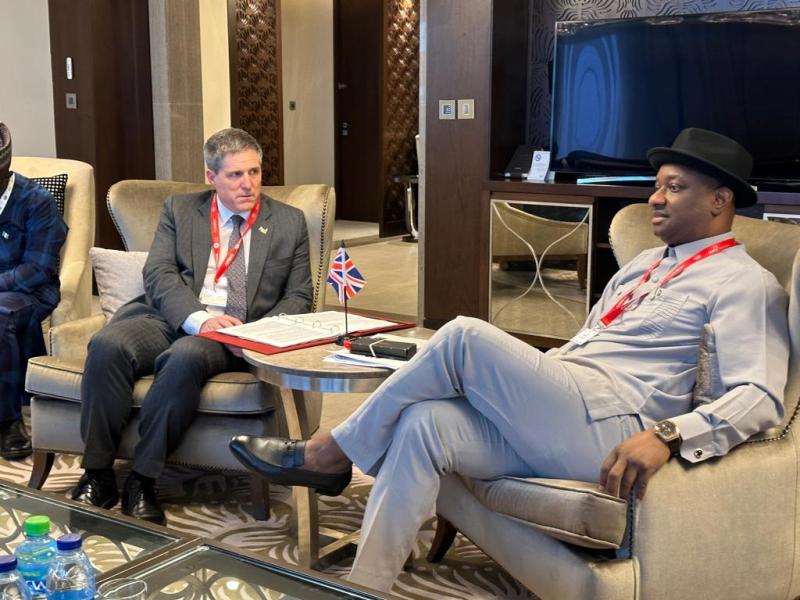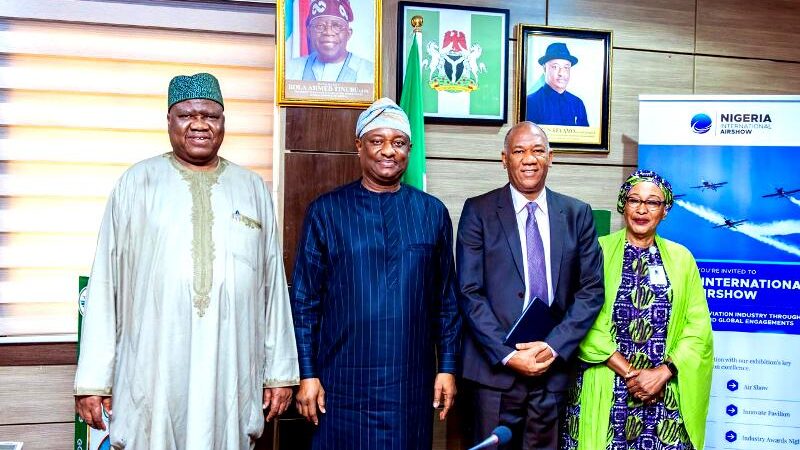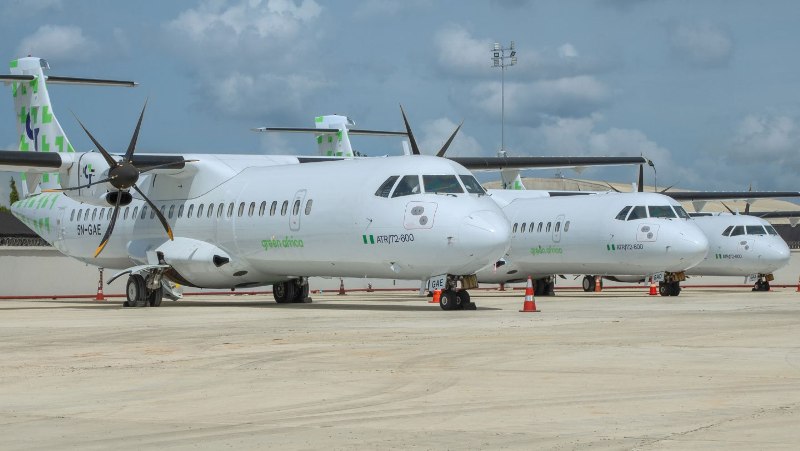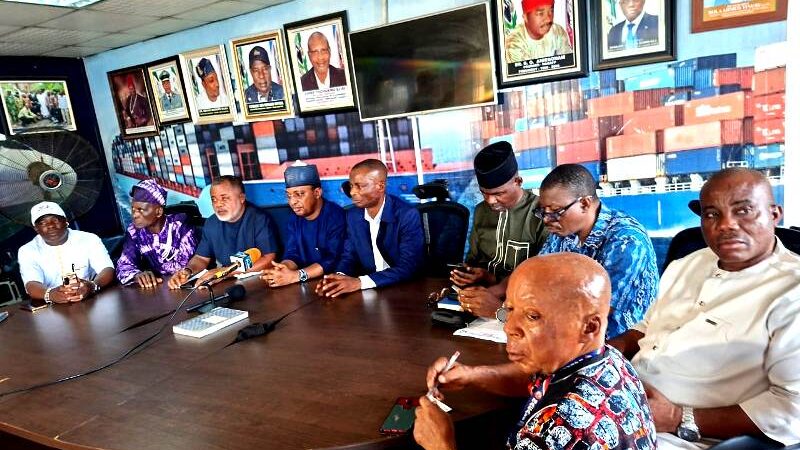Keyamo Urges ICAO States With Cleaner Energy Technologies To Partner With Developing Countries

Nigeria’s Minister of Aviation and Aerospace Development, Barrister Festus Keyamo (SAN) has called on “the States with the necessary technologies for developing and producing SAF/LCAF and other cleaner energy for aviation to work with the developing countries especially in Africa, to transfer such technologies to produce SAF/LCAF in Africa so that there is global availability of SAF/LCAF.”
A statement signed by Tunde Moshood, SA Media and Communications To The Honourable Minister of Aviation and Aerospace Development says the Minister who spoke on behalf of the continent at the ongoing Third ICAO Conference on Aviation and Alternative Fuels reminded the organizers of the submissions at the 41st ICAO Assembly where the global aviation stakeholders resolved to working together to strive to achieve a collective long-term global aspirational goal for international aviation (LTAG) of net-zero carbon emissions by 2050.
The Minister advised global aviation stakeholders on the need to harmonize the development, production and deployment of the proposed Sustainable Aviation Fuels (SAF).
“As we gather here in CAAF 3 to review and update the 2050 ICAO Vision for SAF, including LCAF and other cleaner energy for aviation, in order to define a global framework, I wish to highlight that; No particular region should be left behind in developing, producing and
deploying SAF/LCAF and other cleaner energy for aviation. Cost and affordability are central issues to implement policies in support of the Vision. Noting that the price differential of SAF/LCAF is higher compared to conventional jet fuels today, the global framework must address availability, reliability and affordability of SAF/LCAF and its cost impacts on air fares. Any potential targets or any amount of SAF/LCAF and other cleaner energy for aviation to replace conventional fuels should be a global target without attribution or commitment of individual State target. The global framework must be supported by a robust and targeted institutional strengthening and capacity building, technology transfers and access to new and financing to all States especially to developing countries in line with No Country Left Behind. In particular for financing, the global framework must ensure simple, clear and easily accessible financing or funding (both public and private) for the development, production and deployment of SAF/LCAF.
The Nigeria’s Aviation Minister informed the global audience of the continent’s future plan for the aviation sector, “central to this growth and development is our realization that environmental sustainability and tackling climate change will contribute to the sustainable development of air transport especially in Africa. It is for this reason that the African Union under Agenda 2063 has identified the Single African Air Transport Market (SAATM) as one of the flagship projects to transform the aviation industry in Africa, promote socio-economic development and integration of Africa”.
Speaking further, Keyamo also told the audience about the importance of Aviation to the African economy, “Africa is home to over 1 billion people with a vast landmass that requires a robust aviation system to move people and goods around. Aviation supports socio-economic development and integration of Africa and as such we have committed to ensure the growth and development of African Aviation in the same way as other regions of the world. As part of the African efforts to address this resolution, the African member States working through AFCAC have taken the initiative to accelerate the development, production and deployment of SAF, LCAF and other cleaner energy sources for aviation. The initiative focuses on four key pillars namely; Development and Harmonization of Policies in Africa to promote SAF/LCAF development, production and deployment in African States, attract appropriate technology and financing to enable building of SAF/LCAF production facilities in African States. Institutional, Human and Technical Capacity enhancement in African States and Regional Economic Communities (RECs) to support implementation of SAF/LCAF initiatives in Africa including building of SAF/LCAF producing facilities in African States; Technical Feasibility studies/assessments on the potential of SAF/LCAF as a basis for public and private investment in SAF/LCAF production in Africa; Resource mobilization and lobbying through the African Union, it’s development partners as well as all other available funding sources to provide funding for building of SAF/LCAF production projects in African States.
In his speech, Keyamo also recognized that member States of the aviation stakeholders had adopted Resolution A41-21 which recognized that the LTAG is a collective global goal, and does not attribute specific obligations to individual States, or takes into account special circumstances and respective capabilities of States, in particular developing countries; maturity of aviation markets, the sustainable growth of the international aviation industry and that emissions may increase due to the expected growth in international air traffic until lower emitting technologies and fuels and other mitigating measures are developed and deployed.
He promised that the African continent would be making its contributions through the respective States who will speak and present technical papers as well as through the coordinated technical submissions by AFCAC under the respective agenda items to further share experiences and its expectations for the global framework that will be adopted at this CAAF 3.
“A lot is happening in the African continent to address the resolution of net zero CO2 emissions by 2050. An initiative to accelerate the development, production and deployment of SAF/LCAF and other cleaner energy has been launched to address the low the production levels of SAF,
LCAF and cleaner energies in Africa”, he informed.
During the High-level Roundtable session on Sustainable Development of Air Transport in Africa held on the margins of the 36th African Union (AU) Assembly of Heads of State and Government in Addis Ababa, Ethiopia on 19th February 2023, the Ministers of the AU Member States, the AU High Representative for Infrastructure Development in Africa, AFCAC and other aviation stakeholders identified soaring aviation fuel prices that continue to put African airlines under strain. This necessitates identification of cheaper alternative sources of aviation fuels mainly the use of Sustainable Aviation Fuels (SAF) to ensure competitiveness in addition to enhancing efforts to decarbonize the industry by contributing to a 55% reduction in GHG emissions by 2050. The session came up with a recommendation to undertake a comprehensive continental study on the development and deployment of Sustainable Aviation Fuels (SAF) in Africa.
Keyamo also told the audience that, in September 2023, the Ministers of Transport in Africa adopted a roadmap for the continental development, production and deployment of SAF/LCAF and other other cleaner energy for aviation. These two important actions taken by the African Union and AFCAC demonstrate the commitment of the continent to address decarbonization of civil aviation. This is the same commitment and openness that we bring to this CAAF 3 to engage with our partners from other regions to reach a consensus on the global framework that will work for all.
In his conclusion, Keyamo reiterated that the Assembly Resolution A41-21 recognizes that, means of implementation commensurate to the level of ambition, including financing, will promote the achievement of the LTAG. Africa is ready to play its part.
On the final note, the Aviation Minister called on ICAO to continuously partner with all regional organizations to address the challenge of institutional strengthening and capacity enhancement of expertise in all regions.






